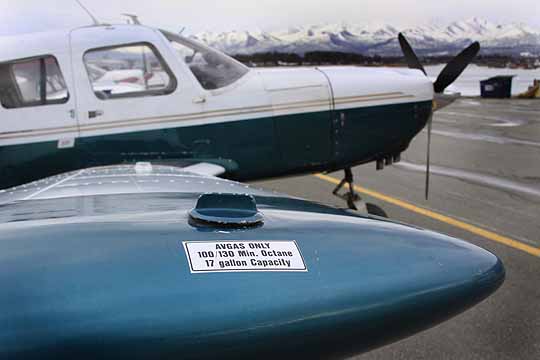WASHINGTON, D.C. –( July 22,2010)- U.S. Sen. Lisa Murkowski, R-Alaska, has called on the Environmental Protection Agency (EPA) to ensure that any new regulations on leaded aviation fuel under the Clean Air Act are implemented in partnership with the Federal Aviation Administration (FAA) and aviation stakeholders and that no changes be implemented until an alternative aviation fuel can be developed and tested.
The EPA has formally begun a regulatory process under the Clean Air Act which may result in standards mandating that the aviation industry transition to unleaded aviation gasoline, or avgas. The EPA has issued an advance notice of proposed rulemaking (ANPR), providing an opportunity for the general aviation community to comment on this possible new environmental standard and the development of a plan for potentially transitioning to unleaded fuel. Murkowski submitted comments as part of the ANPR calling on the EPA to develop a substitute to leaded-gasoline and to test any developed alternatives in Alaska.
These potential regulatory changes, if implemented by the EPA, would primarily affect piston-driven aircraft engines. In Alaska, there are more than 10,000 registered piston engine aircraft, many of which serve as the primary mode of transportation and source of goods and supplies for many Alaskans and are vital to the transportation, recreational and survival needs of numerous communities. A change in this regulation could result in approximately 30 percent of Alaska’s piston engine fleet requiring engine modification or being grounded completely due to a switch to unleaded fuel.
“Aviation is a basic mode of transportation and the small general aviation aircraft is the equivalent of the minivan for a family in bush Alaska,” Murkowski wrote in her submitted comments.
Should the EPA move forward to implement changes requiring private aircraft to shift from leaded aviation gas to unleaded before the development of an alternative fuel for aircraft engines, Murkowski said the changes could result in severe economic and social impacts to communities across Alaska as aircraft owners are forced to modify or even replace their engines in order to meet new EPA regulations.
“Over 95 percent of Alaskan aircraft are piston engine aircraft that burn leaded aviation fuel. Without these aircraft and their ability to access these rural and oftentimes remote communities, thousands of Alaskans could face extraordinarily negative socio-economic problems,” Murkowski wrote.
Murkowski also stressed the need for the EPA not to enact broad policy changes on the use of leaded aviation fuel without jointly working with the FAA and without a consensus of members of the aviation community who manufacture, service and operate aircraft engines using leaded fuel.
